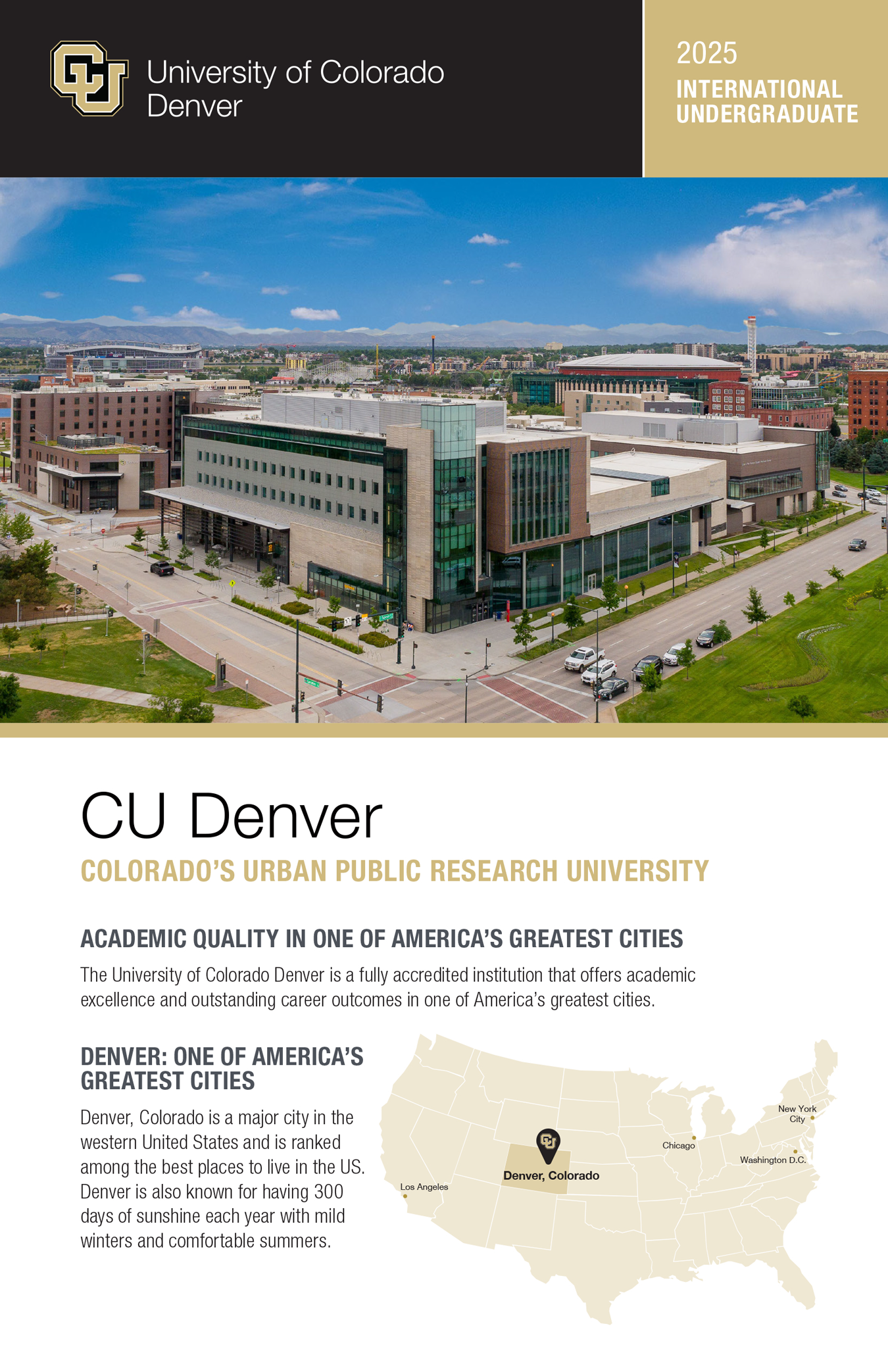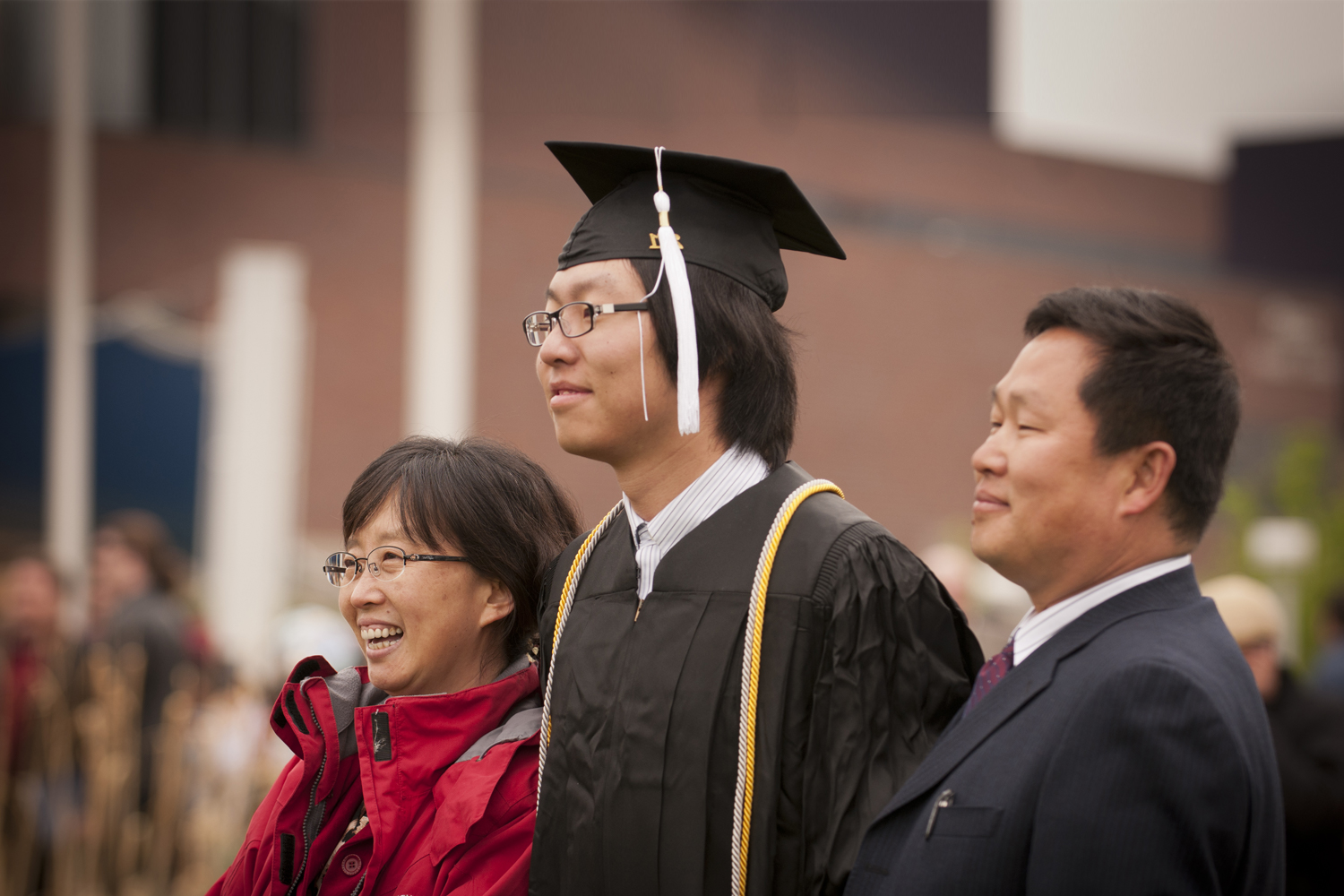Convergence of Interests: Teaching, Traveling, New Cultures
Aaron Meininger, Economics Instructor
Feb 2, 2014
Chinese students enrolled in International College Beijing (ICB) enjoy learning from University of Colorado Denver faculty on both the Denver and Beijing campuses. For Aaron Meininger, PhD, landing a teaching position at ICB represented a convergence of three important areas of interest: teaching, traveling, and learning about new cultures.
Meininger began his undergraduate degree program at Montana State University in Bozeman, Montana and completed a Bachelor of Science in Economics at Sonoma State University in Cotati, California. At the University of California at Santa Cruz, he received a master’s in economics, and went on to complete a doctoral degree in international economics with specialties in international trade and international finance. As a graduate student, he won a number of excellence-in-teaching awards and taught intermediate courses in micro- and macroeconomics.
WHY DID YOU CHOOSE ECONOMICS TO BE YOUR MAJOR? WHY DID YOU CHOOSE TO BE A TEACHER IN ICB INSTEAD OF FINDING OTHER JOBS?
I started out my undergraduate career in Political Science. I have always loved to do volunteer work, as I love to help people. I thought that by being in the political arena I could make some changes that would improve people’s lives. While in school, I found that I had a comparative advantage in doing mathematics. In my sophomore year I switched majors to math because it was challenging and fun. In my junior year I started to think about what I wanted to do with my life after college and I didn’t exactly see myself in the mathematics field. (Like most undergraduates, I wanted to get a job that would pay well.) I changed my major to economics because I liked business and I was relatively good at math; it seemed like the perfect fit for me.
I have had a fascination with the cultures of Asia; they are all so different from the culture in which I grew up. I have always had a thirst for knowledge. When I saw the job offer from CU Denver to teach environmental economics in China, the three things I love in life converged: traveling and learning about new cultures, teaching students about the subject I love, and making a difference in the world.
WHAT DO YOU THINK IS THE MOST IMPORTANT PART OF AN ECONOMIC CLASS?
The most important part of an economics class is the ability to think like an economist. The vocabulary and definitions are paramount for good communication, and the models and equations help us to explain complex relationships in a manageable fashion, but the real power of economics comes from the way we think about optimization in a rational setting. Thinking in this way helps us to see all things in life a little differently; it allows us to see how to make things better for everyone in a way that is manageable and reliable.
WHAT ARE YOUR EXPECTATIONS OF YOUR STUDENTS IN THE FUTURE?
My expectations for my students in class in that they listen and truly try to understand the deeper meaning behind the topics we teach them. In principal classes, it is to try and understand the way people make decisions and to become familiar with the concept of optimization. Also, to look at the tools that we use to achieve selected results. In the intermediate classes the expectations change. I now expect student to become more familiar with the finer details of the tools we use and to start to gain the deeper understand of economics and its ability to shape society as it has done for the past few centuries, and as it will do in the forthcoming future. In my upper-division classes I expect the most of my students. I expect them to be able to wield the tools that they have learned with precision, to be able to make deep connections between the material presented in a book or article and the world they see around them, and to do all of that ethically and with honor.
IN YOUR OPINION, WHAT ARE THE DIFFERENCES BETWEEN CHINESE AND AMERICAN STUDENTS?
American students and Chinese students are very different in many ways, some good and some not so good. Instead of focusing on differences, I choose to focus on the similarities. All good students are eager to learn; they display courage in their studies and in themselves; they do more than what is merely expected of them; they make the transition from students into scholars. When I see a student do these things, Chinese or American, I know that we all have a wondrous future in store for us.
HOW LONG AGO DID YOU JOIN IN THE ICB PROGRAM? WHAT ARE YOUR FEELINGS ABOUT IT?
I have been with ICB for two years now. Initially I chose to go to Beijing because of the positive changes I felt that I could make in students’ lives. I felt that by going to a country that was having many ecological problems due to economic advancement, I could help train their future generation of leaders so that they had a better understanding of the problems they were facing and the difficulties of the solutions we currently employ. I like the CU Denver ICB program. It has a wonderful mission that qualities should lead to its growth for a long time to come.






